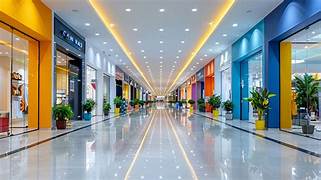Bengaluru Sees 39% YoY Growth with 1 Million Square Feet of Retail Leasing in H1 2024: Report
Read latest blogs and articles from Housystan

The Information mentioned here was last updated on:
29/1/2026Bengaluru Records Impressive 39% Year-on-Year Surge in Retail Leasing, Crossing 1 Million Square Feet in H1 2024
Bengaluru, recognized as India’s technology and innovation capital, has set a new benchmark in the commercial real estate sector by witnessing a remarkable 39% year-on-year increase in retail leasing during the first half of 2024. According to a recent industry report, the city recorded over 1 million square feet of retail space transactions from January to June 2024, establishing its position as a dynamic hub for retail expansion and investment.
This significant growth highlights Bengaluru’s robust economic environment, progressive urban development, and rising consumer demand. The surge in retail leasing is fueled by a combination of factors, including rapid urbanization, increased disposable incomes, and the city’s reputation as a preferred destination for national and international brands. As a result, premium malls, high-street locations, and mixed-use developments have experienced heightened leasing activity across the city’s prime corridors such as MG Road, Indiranagar, Whitefield, and Koramangala.
- Verified Tenants/Buyers
- Unlimited Property Listing
- Zero subscription/charges fee
Global retailers are keen to tap into Bengaluru’s diverse and tech-savvy population, driving up demand for quality retail spaces. The report indicates that sectors such as fashion, food and beverage, electronics, and lifestyle have contributed significantly to the uptrend. Additionally, the city’s thriving start-up ecosystem and strong IT workforce have further boosted retail consumption, attracting both established companies and emerging brands to invest in brick-and-mortar outlets here.
Experts suggest that Bengaluru’s strategic location, connectivity, and forward-thinking infrastructure make it an attractive destination for retail businesses seeking long-term growth opportunities. As the city continues to evolve, developers are focusing on creating experiential spaces that cater to changing consumer preferences, blending shopping, entertainment, and dining experiences seamlessly.
With this upward trajectory, Bengaluru solidifies its status as a retail powerhouse in India. The positive outlook for the remainder of 2024 signals ongoing expansion and innovation in the city’s commercial real estate landscape. Investors, retailers, and developers looking to capitalize on this momentum find Bengaluru’s retail sector a promising avenue for robust returns and sustainable growth.